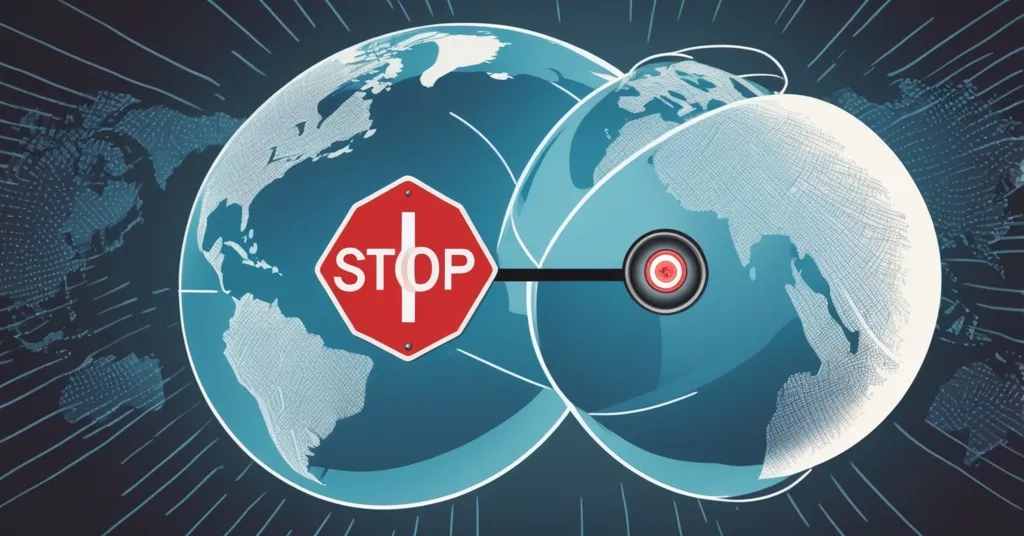Indonesia Halts Worldcoin’s Biometric ID Over Unlicensed Operations

Indonesia Halts Worldcoin’s Biometric ID Service Amid Legal Firestorm
Indonesia has thrown a wrench into Worldcoin’s plans by suspending its token services and World ID biometric network due to unlicensed operations, highlighting the ongoing global scrutiny of biometric data platforms.
- Indonesia suspends Worldcoin over unlicensed operations
- Local partners under investigation for registration misuse
- Worldcoin faces global regulatory scrutiny
The Indonesian Ministry of Communication and Digital Affairs has decisively intervened, halting Worldcoin’s operations due to the unlicensed activities of its local partners, PT Terang Bulan Abadi and PT Sandina Abadi Nusantara. PT Terang Bulan Abadi operated without a Private Electronic System Operator (PSE) registration, which is a required registration for companies handling electronic systems in Indonesia. Meanwhile, PT Sandina Abadi Nusantara was accused of misusing its registration certificate. This regulatory action is not an isolated incident; similar suspensions have occurred in Kenya, Hong Kong, Spain, and Portugal, signaling a global trend of increased scrutiny over biometric data platforms.
Worldcoin, which aims to verify individual uniqueness in the AI era using iris scans, now faces a 60-day deadline to address these issues or risk permanent closure in Indonesia. This project, developed by Tools for Humanity (TFH), has been expanding globally, recently launching in the United States and forming partnerships with companies like Visa and Tinder. Yet, the regulatory environment for biometric data collection is becoming increasingly stringent, driven by concerns over data privacy and consumer protection. Biometric data refers to unique physical characteristics like fingerprints or iris patterns used for identification, and its collection raises significant privacy concerns.
Over 200,000 iris scans have been conducted in Indonesia, representing about 4% of global World ID enrollments. This significant engagement underscores the importance of Indonesia’s market for Worldcoin, but also highlights the urgency of resolving these regulatory hurdles. To resume services, Worldcoin must obtain proper licenses, conduct third-party audits, improve user consent processes, and strengthen local partnerships.
The situation in Indonesia serves as a stark reminder of the challenges facing digital identity systems—or online ID systems, in simpler terms. As Alexander Sabar, Director General of Digital Space Supervision, emphasized,
“Indonesia’s swift intervention may rattle Worldcoin’s ambitions in Southeast Asia, but it also sets a clear bar: compliance and consumer protection must come first in any biometric ID deployment.”
Worldcoin’s regulatory rollercoaster isn’t just a thrill ride; it’s a reminder that in the world of crypto, compliance is king.
Despite these setbacks, Worldcoin has reported reaching 10 million users globally, indicating significant interest and adoption. The project’s expansion into the United States and partnerships with major companies suggest a robust growth strategy. However, the Kenyan court’s order to delete biometric data within seven days underscores the sensitivity of biometric data and the high standards required for its collection and processing.
The regulatory challenges faced by Worldcoin highlight the need for digital identity projects to navigate diverse legal frameworks. This is a critical test for the project’s ability to balance innovation with compliance, ensuring that it can continue to grow while respecting the privacy and legal standards of the countries it operates in.
From a bitcoin maximalist perspective, while Worldcoin’s biometric approach aims to enhance digital identity, it’s worth noting that Bitcoin itself thrives on privacy and decentralization without relying on such data collection. However, Worldcoin’s efforts to innovate in the space of digital identity could complement the broader crypto ecosystem, demonstrating that while Bitcoin remains the cornerstone of financial decentralization, there’s room for other technologies to fill unique niches.
While the regulatory crackdown poses a challenge, it also presents an opportunity for Worldcoin to refine its approach, ensuring robust data protection and transparency. This could ultimately strengthen the platform and its acceptance in various markets. It’s a classic case of the crypto world’s tension between disruptive innovation and the need for regulatory compliance, echoing the principles of effective accelerationism (e/acc) where progress must navigate the complexities of the status quo.
Key Takeaways and Questions
- What led to the suspension of Worldcoin in Indonesia?
The suspension was due to unlicensed operations and misuse of registration certificates by Worldcoin’s local partners, PT Terang Bulan Abadi and PT Sandina Abadi Nusantara.
- What must Worldcoin do to resume operations in Indonesia?
Worldcoin needs to obtain proper licenses, conduct third-party audits, improve user consent processes, and strengthen local partnerships to address the regulatory concerns.
- How significant is Indonesia’s market for Worldcoin?
Indonesia represents about 4% of global World ID enrollments, with over 200,000 iris scans conducted in the country, indicating a notable but not overwhelming portion of their user base.
- What is the global context of Worldcoin’s suspension in Indonesia?
The suspension is part of a broader trend, with similar regulatory actions taken in Kenya, Hong Kong, Spain, and Portugal, reflecting increased global scrutiny of biometric data platforms.
- What is the deadline for Worldcoin to address the issues in Indonesia?
Worldcoin has a 60-day deadline to rectify registration issues or risk permanent closure in Indonesia.



